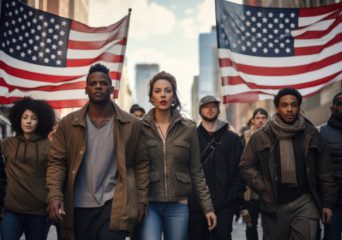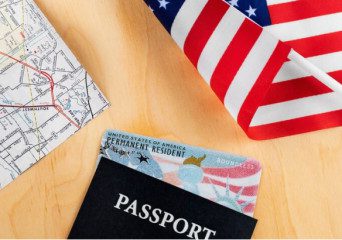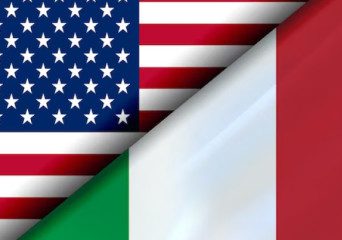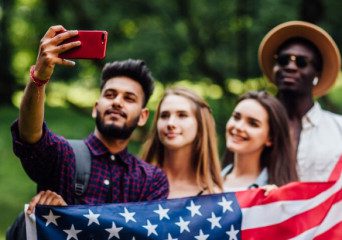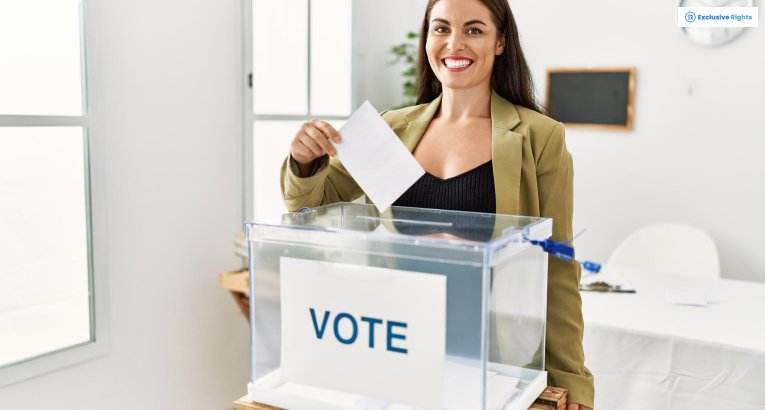
Table Of Contents
All About Right to Participate in Government and in Free Elections
Imagine a world where everyone gets a say in how things are run. This is what the right to participate in government and in free elections truly is.
This right means you have the power to be a part of the decision-making process in your country. Through this, you get a seat at the table where all the important choices are made. You get to have a say in the rules and policies that affect you and your near and dear ones.
Right To Participate In Government And In Free Elections- Meaning
This brings about political engagement. Through this right, you could join a political party, attend community meetings, or speak up about the issues that matter to you. This lets you say, “Hey, I have a say in what’s happening, and I want to be part of the solution”.
This gives one access to information: Knowledge is power. To participate effectively, you need access to information about what’s going on in your country, society, and government. It’s like having a map that helps you solve the twists and turns of politics.
It allows you the Freedom of Expression: This element is all about your right to speak your mind. You can express your opinions, share your ideas, and even voice your concerns without fear of retaliation. Doesn’t this remind you of the whistle-blower protection laws? Well, you guessed it right. A significant chunk of the whistleblower protection laws has originated this way.
Fair and Transparent Elections are the most remarkable aspect of this right : Elections are huge political games where everyone gets their fair chance to play by virtue of this right. Elections must be fair so that everyone has an equal opportunity to participate and also transparent, so you can see what’s happening behind the scenes.
Right To Participate In Government And In Free Elections- History
Earlier, people realized that having a say in their government and free elections was ultimately all about their true role in society. This is why the men, considered the primary beings, got to cast their vote, and women, the secondary beings, the caregivers, did not. Ironic, isn’t it?
- People wanted to be part of the decision-making process and have a fair chance to choose their leaders. This is exactly where the history of the right to participate in government and in free elections began.
- In ancient times, some civilizations were already practicing forms of government participation. They had assemblies where citizens could voice their opinions and vote on important matters. There used to be gatherings around a big table, sharing ideas and making decisions together.
- Then came the Age of Enlightenment, and things got more interesting. Thinkers like John Locke and Jean-Jacques Rousseau brought forth the idea of people having natural rights. They held that the commoner should be involved in their own governance. This slowly brought forth the true meaning of democracy.
- As time went on, people fought hard to hold on to and expand the right to participate in government. The suffragettes, who were mostly women at this point, demanded their right to vote. They marched, protested, and paved the way for universal suffrage. This was the beginning of the battle for equal opportunity. Women refused to be second-class citizens.
- The 20th century witnessed the birth of various civil rights movements. African Americans, Indigenous peoples, and others fought against discrimination and for their right to participate fully in government and elections. They refused to take a back seat and wanted to hold the reigns of their own fundamental rights.
- The right to participate expanded further to include more people. Voting rights were extended to young adults, non-property owners, and, yes, naturalized citizens. All of these groups were heavily affected by government policies. Therefore, they also had a right to decide who made them.
- More and more laws started being enacted to ensure fair elections. Strict laws were implemented to prevent fraud, guarantee the secrecy of the people casting votes through ballots, and promote transparency. Citizens could have confidence in the process through these implementations.
- This human right turned fundamental right to participate in government and in free elections became recognized globally. International agreements and conventions were brought to effect that stated the importance of protecting human rights.
So, this is how the story of the right to participate in government and in free elections takes effect. It’s all about people coming together, fighting for their voices to be heard, and building a democracy where everyone has a seat at the table where all the crucial decisions are made.
Finally! Right To Participate In Government And In Free Elections- Rulings
The courtrooms of the USA have witnessed cases related to the right to participate in government and in free elections. Let’s check some of these out.
- In the Battle for Voting Rights of 1965, the Supreme Court made a landmark decision in the case of Shelby County v. Holder. This ruling struck down a provision in the Voting Rights Act that required certain states to get federal approval before making changes to their voting laws. This was to ensure fairness and equal access to the ballot box.
- One Person, One Vote was established in the case called Reynolds v. Sims. Supreme Court ruling held to ensure fair representation. It was 1964, and the ruling required states to redraw their legislative districts to ensure each person’s vote had equal weight.
- In 1970, in the case of Oregon v. Mitchell, the Supreme Court said that Congress could set the voting age for federal elections at 18. It expanded the circle of democracy, recognizing young adults as active participants in shaping their government.
- In 2010, when the Supreme Court case of Citizens United v. Federal Election ruling took place, it questioned corporations and unions spending unlimited money on political campaigns while considering it a form of free speech.
- In the case of Richardson v. Ramirez in 1974, the Supreme Court looked at whether felons should have the right to vote. The ruling allowed states to deny voting rights to individuals convicted of serious crimes.
These various court rulings showcase the ongoing struggle to define and protect the right to participate in government and in free elections.
Read Also:





